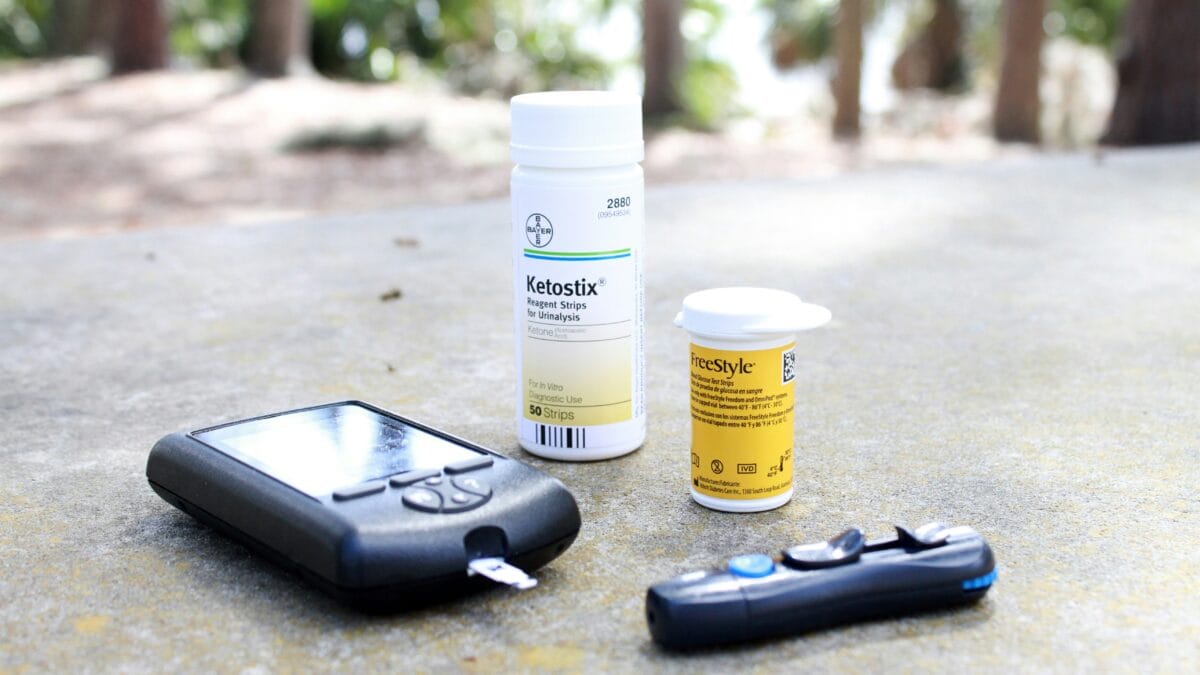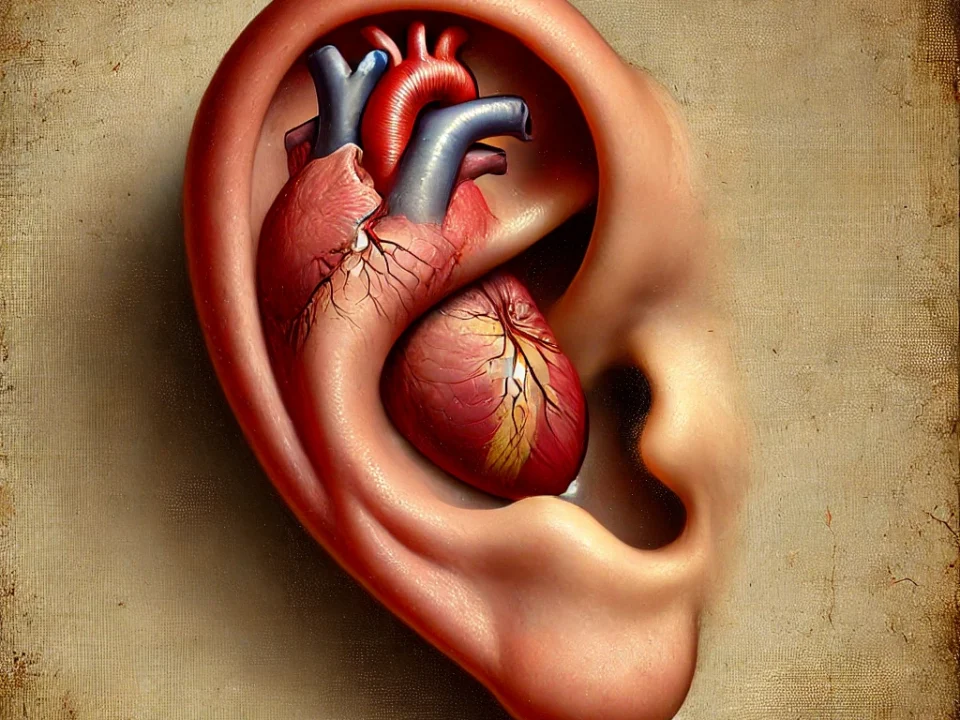
Surfer’s Ear: What You Need to Know
November 26, 2024
How our brains respond to sound and what it means for those with hyperacusis and tinnitus
November 26, 2024As diabetes continues to become more prevalent worldwide, research has unveiled various complications linked to the disease, including a significant association with hearing loss. A comprehensive study funded by the National Institutes of Health (NIH) shows that hearing loss is about twice as common in adults with diabetes as those without. Understanding this connection is crucial, as many people with diabetes may not realise their condition could impact their hearing. Regular hearing assessments, alongside effective blood sugar management, can play a critical role in preserving hearing health for those with diabetes.
The Connection Between Diabetes and Hearing Health
The research conducted by the NIH found a consistent link between diabetes and hearing impairment across a range of sound frequencies, with a notable impact on high-frequency sounds. According to Catherine Cowie, Ph.D., of the National Institute of Diabetes and Digestive and Kidney Diseases (NIDDK), “Hearing loss may be an under-recognised complication of diabetes. As diabetes becomes more common, the disease may significantly contribute to hearing loss.” Cowie emphasised that people with diabetes should consider routine hearing tests to detect potential issues early.
This study, published in the Annals of Internal Medicine, analysed hearing tests from the National Health and Nutrition Examination Survey (NHANES), which included a nationally representative sample of U.S. adults between the ages of 20 and 69. The findings revealed that mild or more significant hearing impairment in the low- to mid-frequency ranges affected about 21 per cent of adults with diabetes compared to around 9 per cent of non-diabetic participants. In the high-frequency range, the disparity was even more pronounced, with 54 per cent of adults with diabetes experiencing hearing impairment, compared to only 32 per cent of those without the disease. Furthermore, adults with pre-diabetes—a condition where blood sugar levels are elevated but not high enough for a diabetes diagnosis—had a 30 per cent higher rate of hearing loss than individuals with normal blood sugar levels.
These findings underscore that hearing loss can begin at an earlier age for those with diabetes, and its severity tends to increase with age and the duration of the disease. The research also suggests that pre-diabetes may be an early warning sign for potential hearing issues, indicating the importance of blood sugar control even before a formal diabetes diagnosis.
Possible Causes of Hearing Loss in Diabetics
The link between diabetes and hearing loss is believed to stem from damage to the inner ear’s tiny blood vessels and nerves caused by elevated blood sugar levels. Over time, high glucose levels can lead to neuropathy (nerve damage) and impact blood circulation, particularly in delicate areas like the cochlea, which is critical to our ability to hear. Autopsy studies on diabetes patients have found damage to the inner ear’s tiny blood vessels, supporting this theory.
Additionally, inflammation caused by diabetes may exacerbate this damage, further impeding blood flow and oxygen supply to the ear’s sensitive structures. These findings show that diabetes affects the auditory system much like other body parts, such as the eyes, kidneys, and feet.
The Importance of Regular Hearing Assessments for Diabetics
Given the increased risk, regular hearing assessments are essential for individuals with diabetes. Early detection can help manage hearing loss more effectively, as mild impairments are more accessible to treat and adapt to than severe ones. Regular check-ups allow audiologists to track changes in hearing over time and implement timely interventions, such as hearing aids or other assistive devices, which can significantly enhance the quality of life.
For people with diabetes, annual hearing exams can:
- Detect hearing changes early: Hearing loss is often gradual, and regular tests can identify changes before they become profound.
- Facilitate early intervention: By addressing hearing loss early, patients can access hearing aids and other resources to maintain communication and cognitive health.
- Highlight underlying health issues: Hearing health can reflect overall vascular health, so changes in hearing could signal other complications of diabetes, such as cardiovascular or nerve-related issues.
At The Audiology Place, we emphasise that an annual hearing test should be essential to a diabetic’s healthcare routine. These tests can be quick and painless, providing vital insights into a patient’s hearing health and alerting them to potential complications.

Preventative Measures to Protect Hearing Health in Diabetics
While hearing loss may be more common in individuals with diabetes, specific preventative measures can help reduce this risk. Here are a few tips to help protect hearing health:
- Control Blood Sugar Levels: Maintaining stable blood glucose levels, including hearing, is crucial for overall health. Managing blood sugar through diet, exercise, and, if necessary, medication can help minimise damage to blood vessels and nerves.
- Monitor Blood Pressure and Cholesterol: High blood pressure and cholesterol can also impair blood vessels in the ear. Keeping these factors under control is essential for both cardiovascular and hearing health.
- Avoid Prolonged Noise Exposure: Loud noises can cause hearing damage, especially for those with an increased risk of hearing impairment. People with diabetes should take extra precautions by using ear protection in noisy environments and limiting exposure to high-volume sound.
- Exercise Regularly: Physical activity promotes good circulation, which supports the health of the inner ear. Even moderate exercise can make a positive difference.
- Quit Smoking: Smoking reduces blood flow and worsens the impact of diabetes on blood vessels. By quitting, people with diabetes can protect their hearing and overall vascular health.
Diabetes, Hearing Loss, and Quality of Life
Hearing loss can significantly impact the quality of life, affecting communication, social interaction, and even mental health. For people with diabetes, untreated hearing loss may add to the burden of managing their condition, potentially leading to isolation and cognitive decline. Early intervention with hearing aids or assistive listening devices can significantly enhance life quality, enabling individuals to remain engaged and connected.
Moreover, preserving hearing health can support overall well-being. Social isolation, depression, and cognitive decline have all been associated with untreated hearing loss, especially in older adults. For those managing diabetes, addressing hearing loss early can make it easier to maintain a positive outlook and engage fully with family, friends, and activities.
Supporting Diabetic Patients in Their Hearing Health Journey
At The Audiology Place, we are dedicated to providing comprehensive hearing care tailored to the needs of diabetic patients. From routine hearing assessments to personalised hearing solutions, our goal is to help individuals maintain their hearing health and quality of life.
If you or a loved one is managing diabetes, consider scheduling a hearing test as part of your regular health care. Early detection and prevention can make a difference, enabling you to navigate diabetes and hearing health with confidence and support. Reach out to The Audiology Place today to learn more about how we can help protect your hearing for the future.
References
Bainbridge KE, Hoffman HJ, Cowie CC. (1999 to 2004) Diabetes and hearing impairment in the United States: audiometric evidence from the National Health and Nutrition Examination Survey. Ann Intern Med. 2008 Jul 1;149(1):1-10. doi: 10.7326/0003-4819-149-1-200807010-00231
Gedawy, A., Al-Salami, H., R Dass, C. (2024). Biochemical changes to the inner ear contributing to diabetes-induced hearing loss: possible pharmacological targets for therapy, Journal of Pharmacy and Pharmacology, Volume 76, Issue 4, Pages 295–306, https://doi.org/10.1093/jpp/rgad124
Gioacchini, F. M., Pisani, D., Viola, P., Astorina, A., Scarpa, A., Libonati, F. A., Tulli, M., Re, M., & Chiarella, G. (2023). Diabetes Mellitus and Hearing Loss: A Complex Relationship. Medicina, 59(2), 269. https://doi.org/10.3390/medicina59020269
NIH (2008). Hearing Loss Is Common in People with Diabetes. Available from https://www.nih.gov/news-events/news-releases/hearing-loss-common-people-diabetes
Okano T, Kelley MW (2012). Stem Cell Therapy for the Inner Ear: Recent Advances and Future Directions. Trends in Amplification. 16(1):4-18. doi:10.1177/1084713812440336
Shafiepour M, Bamdad Z, Radman M. (2022). Prevalence of hearing loss among patients with type 2 diabetes. J Med Life. 15(6):772-777. doi: 10.25122/jml-2021-0300






